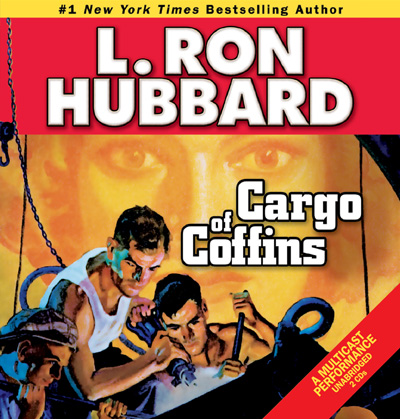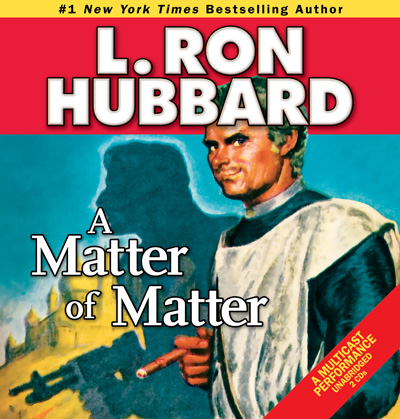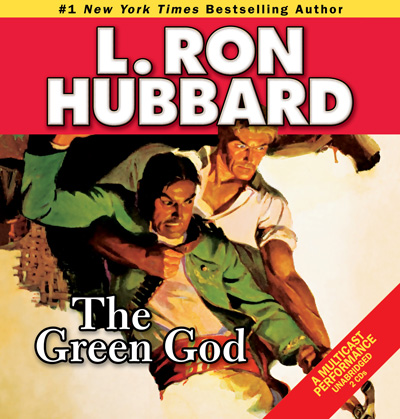Women. Liquor. Power.
Women. Liquor. Power.
That is Fanner Marston’s mantra—his reason for being—and while he knows a little about the first and a lot about the second, he may well be on the verge of learning everything there is to know about the third. Power. He may, in fact, be about to uncover the key to gaining absolute control over the entire universe. The only problem is, Fanner is certifiably insane.…
His starship has crash-landed, and he’s the sole survivor, which doesn’t matter to him. Driven by greed and lust for power, wracked by thirst, hunger, and pain, all he cares about is reaching the ancient city of Parva and making himself at home. Because there lies The Great Secret to universal domination—and what’s a little suffering on the road to becoming God?
Does Fanner have a prayer? The writing’s on the walls of Parva—and you won’t believe what it says.…
Also includes the science fiction adventures, “The Space Can,” in which a decrepit space battleship is a civilian fleet’s only defense; “The Beast,” the tale of a hunter in the jungles of Venus, chasing an immoral beast; and “The Slaver,” in which an alien race has enslaved the human race, but can’t repress the power of human love.
Performers: R.F. Daley (narrator), Bruce Boxleitner, Jim Meskimen, Chuck White, and Lynsey Bartilson.
“Serves as a wonderful introduction to the breadth of Hubbard’s output.” —Comic Buyers Guide
SAMPLE
ABOUT THE AUTHOR
By the spring of 1938, L. Ron Hubbard’s stature as a writer was well established. As author and critic Robert Silverberg puts it: he had become a “master of the art of narrative.” Mr. Hubbard’s editors urged him to apply his gift for succinct characterization, original plot, deft pacing, and imaginative action to genres that were new, and essentially foreign, to him—science fiction and fantasy. The rest is Sci-Fi history.
The Great Secret Glossary
Stories from the Golden Age reflect the words and expressions used in the 1930s and 1940s, adding unique flavor and authenticity to the tales. While a character’s speech may often reflect regional origins, it also can convey attitudes common in the day. So that readers can better grasp such cultural and historical terms, uncommon words or expressions of the era, the following glossary has been provided.
avarice: extreme greed for wealth or material gain.
batteries: groups of large-caliber weapons used for combined action.
beaters: people who drive animals out from cover.
beck: a gesture of the hand, head, etc., meant to summon.
bos’n: bosun; a petty officer on a merchant ship who supervises the work of other crew.
brutes: animals other than human beings.
city room: the room in which local news is handled for a newspaper, a radio station or for another journalistic agency.
CPO: Chief Petty Officer.
crackbrain: a foolish, senseless or insane person.
dissolution of Gaul: “Pop chose to attempt the dissolution of Gaul in the manufactures of Kentucky” is a play on words, meaning that he tried to drown his bitter feelings in whiskey. The two words are Gaul and gall. Gaul was a territory in western Europe, which was dissolved (brought to an end) militarily by Julius Caesar in the first century BC and eventually became a Roman province. Gall is something bitter or distasteful; bitter feeling. The “manufactures of Kentucky” refers to whiskey produced in Kentucky.
dodger: a screen to provide protection on a ship.
dry washes: dry stream beds, as at the bottom of a canyon.
flagon: a container for beverages, with a handle, narrow neck, spout and sometimes a lid.
gangway: a narrow, movable platform or ramp forming a bridge by which to board or leave a ship.
G-men: government men; agents of the Federal Bureau of Investigation.
haft: the handle of a knife, ax or spear.
hard by: in close proximity to; near.
hither and thither: in many directions in a disorderly way.
juju: something thought to possess magical powers.
manufactures of Kentucky: whiskey made in Kentucky.
O: used in solemn or poetic language to add earnestness to an appeal.
obit-ed: a coined word meaning to write an obituary (a notice of a person’s death, often with a short biography, in a newspaper).
obtained: existed.
pannikin: a small metal drinking cup.
Scheherazade: the female narrator of The Arabian Nights, who during one thousand and one adventurous nights saved her life by entertaining her husband, the king, with stories.
shoal: to become shallow.
slaver: a slave ship; a ship for transporting slaves from their native homes to places of bondage.
slug: a bullet.
spraddled: spread apart.
squelched: made a sucking sound (while walking on soft wet ground).
struck no colors: never surrendered. A variation of the phrase “striking the colors,” which is the universally recognized sign of surrender for ships at battle; the flag is hauled down as a token of submission.
terrier who had no eyes for the size of her rats: terrier is a group of dogs initially bred for hunting and killing vermin, such as rats and small game, both above and under the ground. While usually small, these dogs are known for being brave and tough with a lively, energetic personality. They will tenaciously go after their prey, undeterred by its size, even digging into the ground if needed to reach it. Used figuratively.
thou: archaic form of you.
tramp: a freight vessel that does not run regularly between fixed ports, but takes a cargo wherever shippers desire.
vassals: servants or slaves.
Venusian: relating to the planet Venus.











